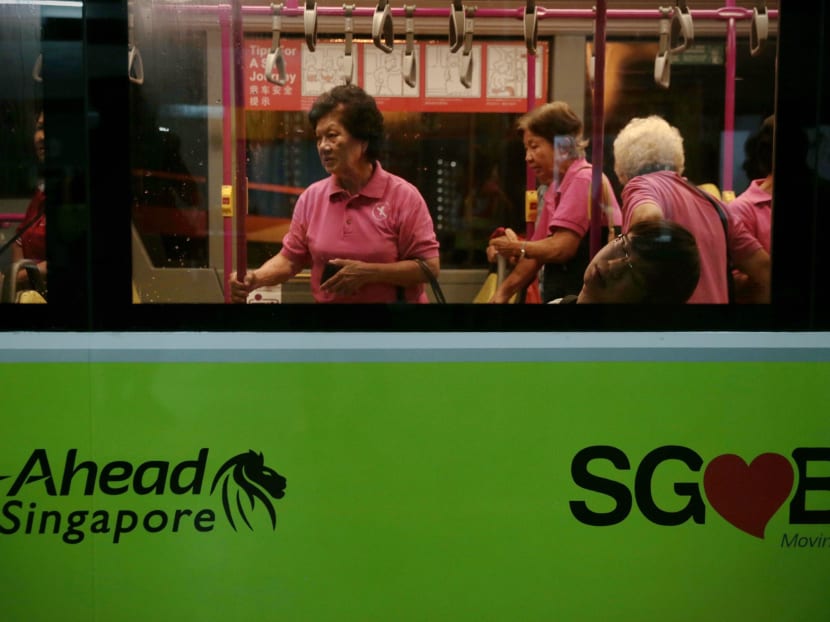Go-Ahead Singapore turns to other bus operators for help after losing drivers
SINGAPORE — Just a little over two weeks into the start of its bus operations here, transport operator Go-Ahead Singapore has lost a number of its bus captains, and is engaging drivers on a short-term-contract basis from SBS Transit and SMRT Buses to cope.
SINGAPORE — Just a little over two weeks into the start of its bus operations here, transport operator Go-Ahead Singapore has lost a number of its bus captains, and is engaging drivers on a short-term-contract basis from SBS Transit and SMRT Buses to cope.
The number of drivers who have left is fewer than 20, said a Go-Ahead spokesperson in response to queries, and did so because they had difficulties adjusting to the operator’s “interlining” model, which requires bus captains to drive a number of different routes during the week, instead of one single route.
“It’s a very flexible business model which will benefit us and commuters as well, because (our) bus captains know how to drive a number of services. But because it’s a new concept in Singapore (in) the bus market, it’s not very popular with our bus captains,” said the spokesperson.
Go-Ahead Singapore last year won the contract to operate bus services in Loyang, the second to be put up for tender by the Government under the bus-contracting model. It started operations on Sept 4 and has 24 services, with one more to begin next year.
From Wednesday (Sept 21), 30 SBS Transit (SBST) bus captains will be deployed at Loyang Depot for about two months, to drive Services 358 and 359. Ten SMRT bus captains will also be deployed to help Go-Ahead but details such as when this will start and which services will be involved are being worked out.
Go-Ahead declined to share remuneration details for the sub-contracting arrangements. It had made the request for more drivers as the attrition rate was “higher than expected”. The company said 38 more bus captains are due to enter service over the “coming weeks” and that it is sourcing for and recruiting more bus captains.
Said Go-Ahead’s deputy chairman David Cutts in the release: “This move is about ensuring commuters continue to receive a service they can rely on. I am grateful to SBS Transit and SMRT Buses for their support and we will work towards recruiting and training more bus captains so as to take care of the journeys of commuters.”
The temporary arrangements were approved by the Land Transport Authority, which said it will work with Go-Ahead, SBST and SMRT to ensure that commuters continue to be provided with regular bus services while Go-Ahead continues its recruitment.
Go-Ahead, which now has 661 bus captains, has also altered its schedules after feedback from the bus captains. Since Sunday, for instance, bus captains have been operating one trunk service per day instead of two.
“These revised schedules will better meet staff needs at the same time as retaining operational efficiencies,” said its spokesperson. In August, the company had about 700 bus captains.
National Transport Workers’ Union executive secretary Melvin Yong said the union will work with the three operators to support affected bus captains with the new work arrangements and to address their concerns.
Interlining arrangements are common in the United Kingdom, where Go-Ahead and Tower Transit — the Republic’s two newest public bus operators — are headquartered.
Tower Transit, which started operating 26 bus services here in May, adopts a “conservative amount” of interlining in Singapore, said its group communications director Glenn Lim. “(Interlining) is not out of the ordinary in London, but is entirely new to Singapore … Naturally with any new model, it takes some getting used to. Tower Transit’s bus captains have taken quite well to it.”
Mr Lim added that the company, which currently employs 800 bus captains, has encountered a “low attrition rate by industry standards”. ADDITIONAL REPORTING BY KENNETH CHENG










